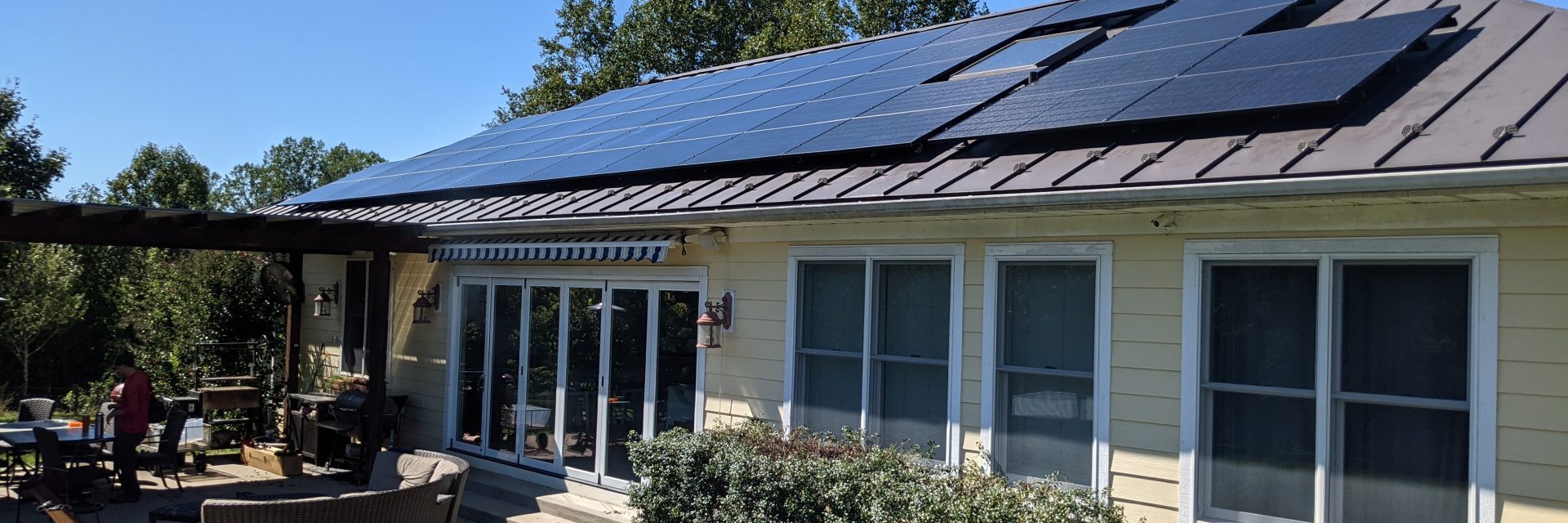The decision to switch to solar energy is an exciting one, with a variety of benefits ranging from reducing your carbon footprint to saving on energy bills. However, one common question that arises is: “How many solar panels do I need?” In this article, we’ll delve into the intricacies of system sizing for grid-tied solar installations and provide insights into the considerations you should keep in mind when evaluating different quotes from solar companies.
What size solar array do I need?
Most companies will start off by aiming to offset 100% of your electrical usage. This is based on what you used in the last year. While aiming to offset 100% of your energy consumption with solar panels might seem ideal, constraints like roof space and budget can impact the feasibility of this goal.
The good news is that even if you’re unable to achieve 100% offset, you can still experience a similar return on investment (ROI) and benefits with a smaller system. Smaller systems, while generally a bit more expensive on a per-panel basis, can offer cost-effective solutions that align with your budget and available space.
How solar systems are sized
Solar systems are typically sized based on your historical energy consumption over the past 12 months. Installers will then try to design a system that can produce that much energy. That way if your energy usage doesn’t change, your solar will provide you 100% of the energy you use in a year.
It’s important to note that solar installers use panels of various watt sizes, which means that the number of panels needed to produce a specific amount of energy can vary. For instance, one company might propose a design with 20 panels, each rated at 400 watts, while another company might achieve a comparable quote using a different number of panels with different wattage ratings. More or less panels doesn’t necessarily mean a bigger or smaller system– That factor is determined by the total system size, or kW of the system you are quoted.
Evaluating system size (kW)
When assessing different solar quotes, the key factor to consider is the size of the system, measured in kilowatts (kW). The system size directly impacts the amount of energy the installation can generate. While some installers might provide estimated energy production (measured in kilowatt-hours or kWh), it’s crucial to focus on the system’s kW size as this value accurately represents the capacity of the solar array. This approach allows you to compare quotes more effectively, regardless of the variation in panel wattage or estimated kWh production.
Understanding production estimates (kWh)
It’s worth noting that solar companies may provide varying estimates of the energy a system will produce. Some companies might overestimate, while others could be more conservative. This variability can further complicate the process of evaluating different quotes based solely on estimated energy production. Keeping in mind the importance of the system’s size (kW) instead of relying solely on estimated production (kWh) can provide a clearer picture of the value you’re receiving from each quote.
In our experience, residential companies will rarely under-estimate production, because if you over-estimate, the payback periods & savings projections will quickly improve. By getting 2-3 quotes, you should be able to get a good idea of what is realistic, and what may be optimistic.
Conclusion
When considering solar panel installation for your home, remember that achieving 100% offset is not the only path to a successful solar investment. Smaller systems can still offer substantial benefits and a competitive ROI, especially when considering constraints like roof space and budget. Focus on the system size (kW) as the primary factor when comparing quotes from different solar companies. This approach allows you to make a more informed decision, free from the variability of estimated energy production (kWh). By prioritizing system size and understanding its impact on energy generation, you can confidently navigate the process of transitioning to solar energy and reap its numerous rewards.

